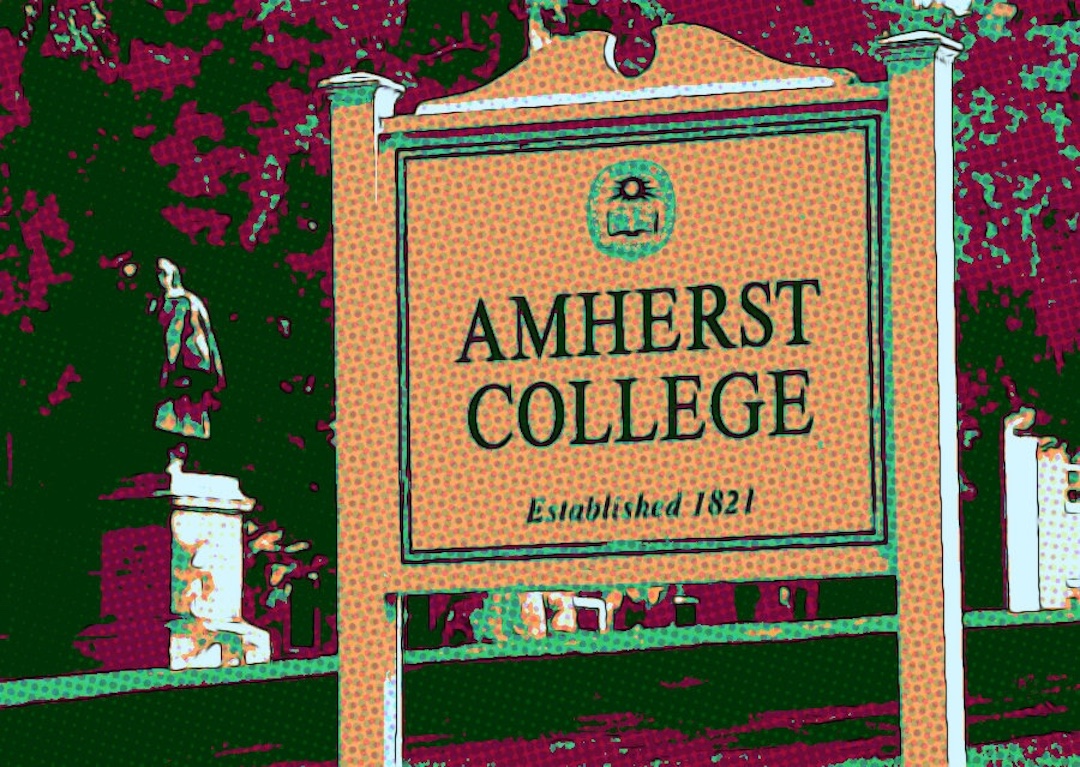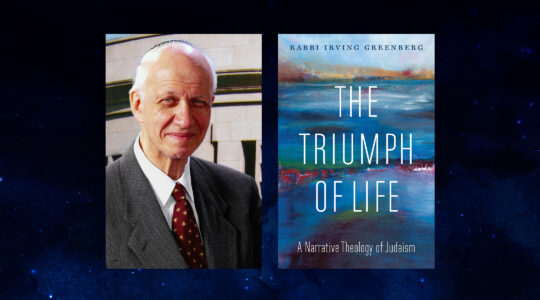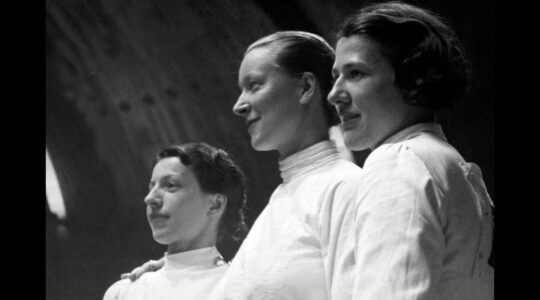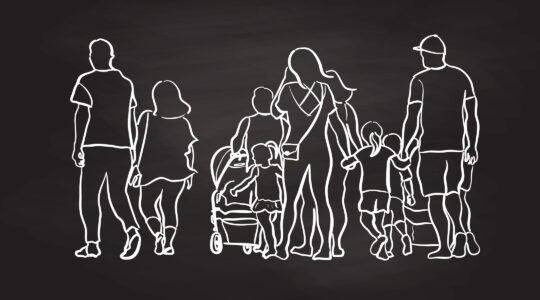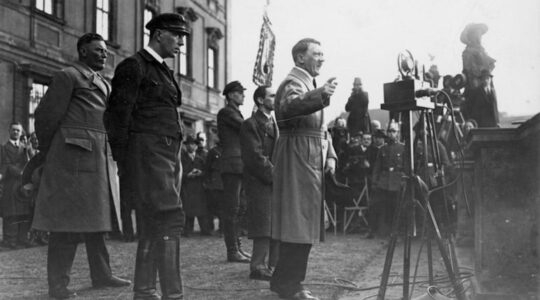This article was produced as part of JTA’s Teen Journalism Fellowship, a program that works with Jewish teens around the world to report on issues that affect their lives. For other perspectives on picking a college amidst the war in Gaza, go here.
(JTA) — Banners hung between trees at Amherst College, proclaiming that Amherst should divest from genocide, that Jews demanded divestment.
Outside Johnson Chapel, where the Admitted Students Day opening remarks would take place, protestors crowded by the single door, with megaphones and pamphlets. “Divest now!” they cried, as they attacked the school’s president for “supporting genocide.”
I lowered my gaze, annoyed, but also afraid to make eye contact. How could I avoid getting a pamphlet? Cross my arms? Just ignore them — or would that make the protesters angry at me? I moved to my mom’s side, away from them, and skirted by thankfully empty-handed.
As the opening remarks began, the protests continued outside the back door. The school’s president spoke, addressing the protestors’ behavior as uncalled for—he left the opening ceremony to meet with them. The noise stopped. Thank God.
Student protests weren’t unknown to me — they’d started at Columbia University a couple days earlier. And when I attended Yale Univerity’s Admitted Students Day, Yale students had been protesting, too, approaching tour groups with fliers. It exasperated me.
While I respect the rights of students to protest issues they care about, I find their militant attitudes and lack of nuance unproductive. Protest chants cannot not lead to helpful dialogue. Instead, students encase themselves in political echo chambers, only fostering resentment and hatred. It’s frustrating. By harassing admitted students like me — people who don’t even go to the school, people who have no ability to divest or do whatever the protestors want — they told me I wasn’t welcome. They told me they didn’t want to discuss the war in Israel, only shout about it.
But the student protests also make me afraid. I know that the majority of student protests are peaceful, but what if they learn that I don’t think the war in Gaza is genocide, that I think both Israel and Palestine have a right to peacefully exist? What if they learn that I am Jewish? Do I become nothing more than a colonizer in their eyes, nothing more than a “Zionist,” a word they spit with the most fervor they can summon?
I try not to think about this. Fear can’t control me. I try to think that if I did go to Amherst College, for example, that I would find people who want to talk about the war in Israel, who are willing to voice their opinions but listen to multiple perspectives. Whether this is during late-night dorm room discussions, over meals, in the classroom, or on the quad, I hope these people will be my peers. And so, as upsetting as the protests were, they probably won’t affect my college decision. As these past few weeks of nationwide protests have proven, angry people are everywhere.
But wherever I go, I will search for open-minded peers. Together, we can have a conversation.

